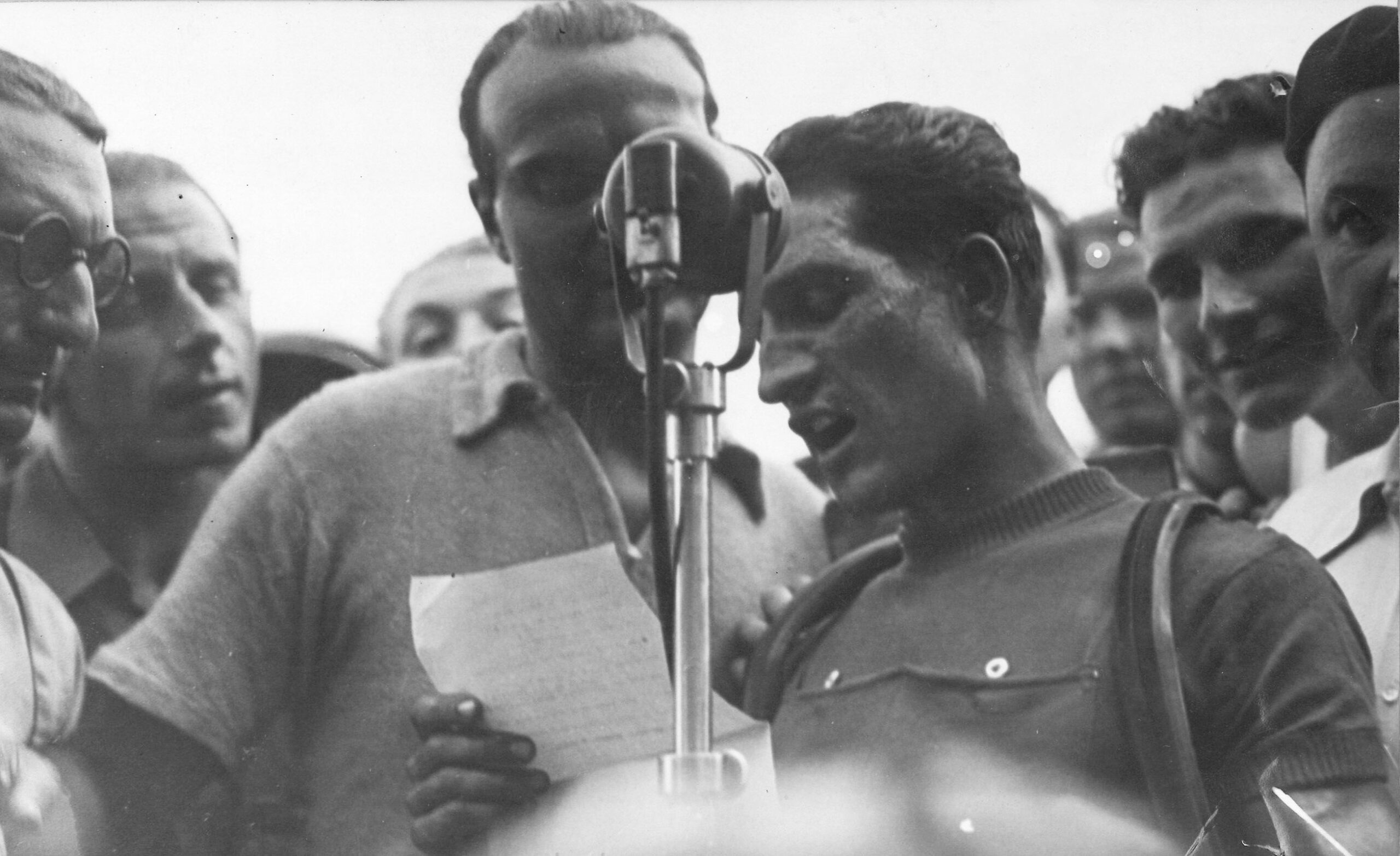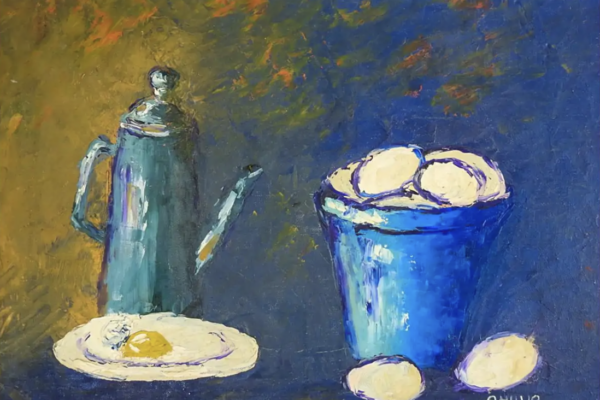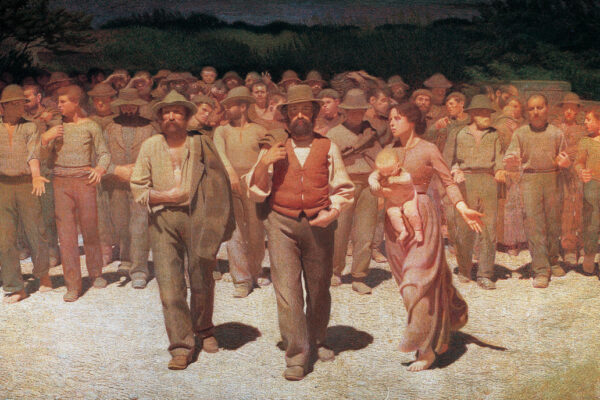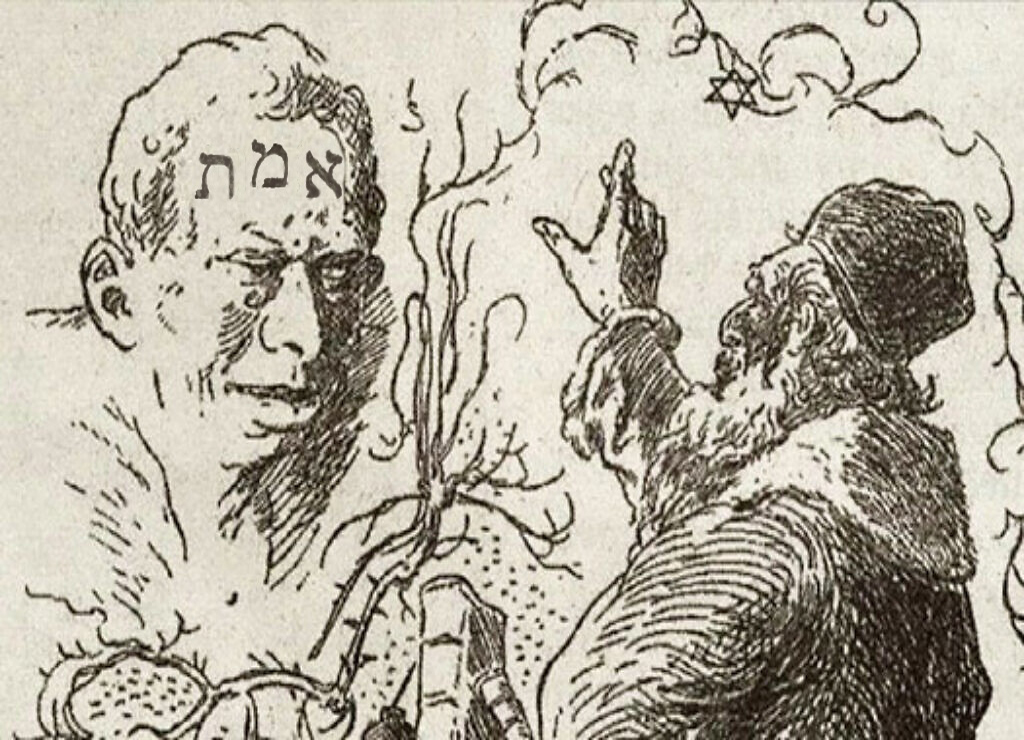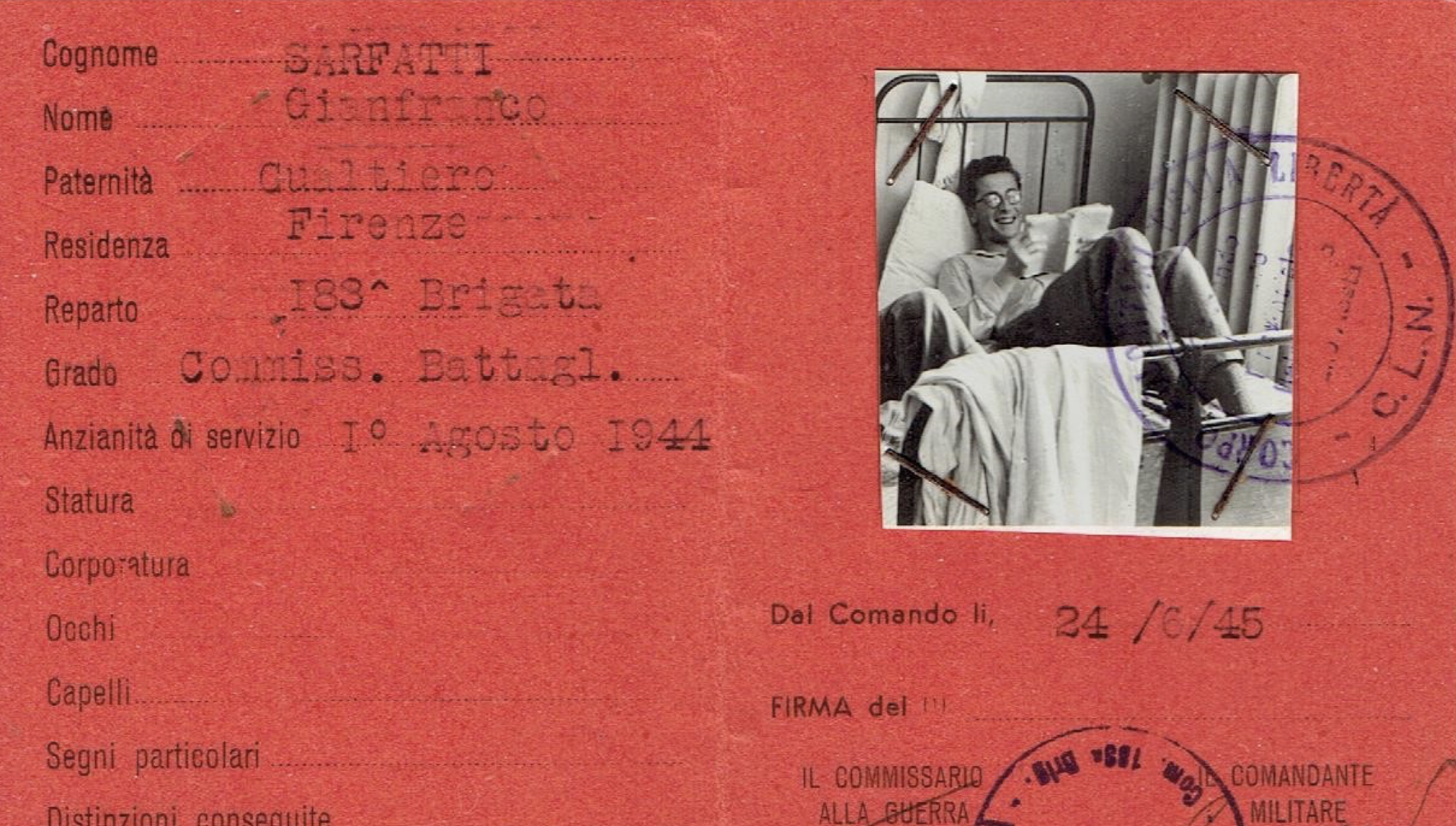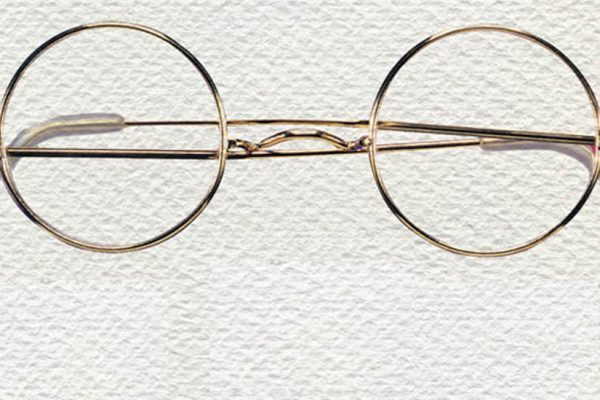The beloved sports correspondent, after having chronicled the Tour de France and Bartali’s victory, is “expelled” in accordance with racial laws. Two letters shed light on Corriere della Sera’s editor Borelli’s harassment towards Gerbi.
From the altar to dust. Such was the parabola of Giuliano Gerbi (1905-1976), successful sports journalist until 1938, — favored by an impeccable Tuscan diction and good looks that struck even Joséphine Baker — I reported on him already a few years ago in an article that appeared in this same periodical (PreText no. 9, November 2018, pp. 120-125). Now, in light of rare or unpublished documents, I am able to better face the depths to which my father’s brother plummeted in the autumn of 1938, after the launch of the 1938 Racial Laws.
That year, his name still figured prominently in the Annuario della Stampa Italiana (1937-1938) as Sports Copy Editor of both the Milanese afternoon daily newspaper, L’Ambrosiano, and the EIAR (Ente Italiano Audizioni Radiofoniche, the postwar RAI). At L’Ambrosiano, he handled mostly sailing, tennis, golf, and winter sports (but he was also sent to Gardone at the beginning of March 1938 for Gabriele d’Annunzio’s funeral). On the radio, though, he followed tennis and cycling, especially. Perusing the vintage issues from 1937 and 1938 of the weekly Radiocorriere (which you can find online at teche.rai.it), his name appears with increasing regularity. For instance, when in 1937 he followed the Giro d’Italia, dominated by Gino Bartali — pink jersey from the eighth stage all the way to the end — the EIAR magazine presented it like this: “The specialized correspondent following the race will be once again the experienced and wonderful Giuliano Gerbi” (no. 18, May 2-8, 1937). Four issues later (no. 22) features a photo of him smiling and resting a familiar hand on the back of national champion “Ginettaccio”.
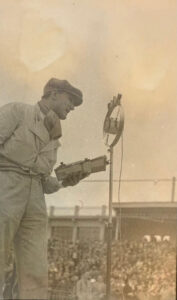 At the time only Nicolò Carosio, with his avidly followed soccer reports, outdid him in popularity. This is demonstrated in Gerbi’s quotes and images, which appeared one after another in the Radiocorriere in 1938 with just as much frequency and benevolence as Carosio’s. The culmination of Gerbi’s career was the Tour de France (5-31 of July) won that year by Gino Bartali. In order to prepare himself for the event Bartali was forced by the authorities to pull out of the Giro d’Italia (cf. M. Franzinelli, Bartali’s entry in the online Dizionario Biografico degli Italiani —Biographical Dictionary of Italians—). I quote here two passages from the Radiocorriere showing how Giuliano was by then dominating the radio scene (months into the peak of Mussolini’s): “Sunday will conclude the Tour de France, which thanks to the participation of our champions has sparked great interest in Italy as well. EIAR organized its broadcast in such a way that this ‘Giro’, one of the most difficult international cycling competitions, was followed and described to listeners in all of its most gripping phases. The task was entrusted to a special guest authority on the subject: Giuliano Gerbi, who, since their departure from Italy, has followed every turn of the wheel of Italy’s team. With Bartali at the lead, on foreign ground and against powerful coalitions of rival cyclists, they have demonstrated exceptional class, steadfastness, and tireless tenacity. These are inherent of their race [my Italics] and it is because of this that the people have greeted with enthusiasm Bartali’s splendid victories and his teammate’s magnificent achievements, guided by the skillful timing strategy of their ‘captain’ [Costante] Girardengo. Gerbi has followed our champions minute by minute, highlighting with frequent announcements the first signs of a nascent victory, the sudden comeback of a discouraged athlete, the acrobatic leap of a racer onto the leaderboard” (no. 31, July 31-August 6, 1938).
At the time only Nicolò Carosio, with his avidly followed soccer reports, outdid him in popularity. This is demonstrated in Gerbi’s quotes and images, which appeared one after another in the Radiocorriere in 1938 with just as much frequency and benevolence as Carosio’s. The culmination of Gerbi’s career was the Tour de France (5-31 of July) won that year by Gino Bartali. In order to prepare himself for the event Bartali was forced by the authorities to pull out of the Giro d’Italia (cf. M. Franzinelli, Bartali’s entry in the online Dizionario Biografico degli Italiani —Biographical Dictionary of Italians—). I quote here two passages from the Radiocorriere showing how Giuliano was by then dominating the radio scene (months into the peak of Mussolini’s): “Sunday will conclude the Tour de France, which thanks to the participation of our champions has sparked great interest in Italy as well. EIAR organized its broadcast in such a way that this ‘Giro’, one of the most difficult international cycling competitions, was followed and described to listeners in all of its most gripping phases. The task was entrusted to a special guest authority on the subject: Giuliano Gerbi, who, since their departure from Italy, has followed every turn of the wheel of Italy’s team. With Bartali at the lead, on foreign ground and against powerful coalitions of rival cyclists, they have demonstrated exceptional class, steadfastness, and tireless tenacity. These are inherent of their race [my Italics] and it is because of this that the people have greeted with enthusiasm Bartali’s splendid victories and his teammate’s magnificent achievements, guided by the skillful timing strategy of their ‘captain’ [Costante] Girardengo. Gerbi has followed our champions minute by minute, highlighting with frequent announcements the first signs of a nascent victory, the sudden comeback of a discouraged athlete, the acrobatic leap of a racer onto the leaderboard” (no. 31, July 31-August 6, 1938).
Just as gratifying for Gerbi was the article in the following issue, featuring him on the front page—light short-sleeved shirt and white linen pants: “The Tour has ended, and for us, it has ended well: after so many second and third places we can greet Paris with an Italian wearing the yellow jersey. For almost a month, the French race has represented a mixed blessing for all Italian athletes […]. Giuliano Gerbi, who followed the Italian team the whole long way, brought the real stars of the whole sporting festival before the microphone, one after another, in homage to the Parisian tradition of greeting the racers at the end of their labor” (no. 32, August 7-13, 1938).
Nothing can be found in the Radiocorriere regarding the fact that at the awards ceremony, “Italy’s national anthems (Marcia Reale and Giovinezza) were not performed, as was the custom.” And that “the winner did not do the Roman salute on the podium, distinguishing himself from the soccer players who, following the example of their captain Giuseppe Meazza, in that very same period won the World Cup [in Paris] performing fascist rituals” (sic also Franzinelli, on the HDBI). After this, the figure of Giuliano — besides one photo with Bartali in the next edition of the Radiocorriere (no. 33, August 14-20, 1938) — dissolved in the fog of the racist legislation.
No documents on his expulsion from active journalism remain, besides the fact that his name disappears from the 1939-1940 edition of the Annuario della Stampa Italiana (the issue after the one cited above), together with those about 160 people “of his same faith,” out of a total of about five thousand colleagues (I thank Enrico Serventi Longhi for this latest information). All that we know is that in the late autumn of 1938, he left for Paris to wait there until he decided what to do. However, he did not have an easy time there either.
Two letters found by scholar Marcello Ciocchetti in the papers of the Corriere della Sera’s journalist, Paolo Monelli (Antonio Baldini Library, Rome) offer insight into this crucial time. In the first, dated January 11, 1929, Aldo Borelli, editor of the daily paper, reprimands the Paris correspondent Monelli for giving part-time work to the “Jew” Gerbi. In the second, dated January 12, Monelli explains to his editor how and why this is happening. I reproduce them here in their entirety; no further explanation is necessary. I will preface that Monelli was evidently on friendly terms with his colleague Gerbi; the two letters demonstrate how disparate people’s behavior can be in situations that require moral firmness. On one end, Borelli emerges a zealous agent of Mussolinian directives, on the other, Monelli, who did not always show sympathy for the Jews in his articles in the Corriere, appears to show solidarity towards a friend in need.
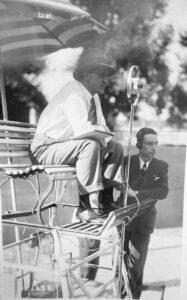 Aldo Borelli wrote to Paolo Monelli on January 11, 1939: “Dear Monelli, I was informed that in the past few evenings, you have been phoned more than once with sports news by the Jewish journalist Giuliano Gerbi. Gerbi has collaborated sporadically with the Corriere’s sports program and done some beats outside of Milan, but as a result of the racial legislation, he had to abandon active journalism and has left the country. It is evident that, given his situation, Gerbi should not collaborate either directly or indirectly with the Corriere della Sera. I would ask that you please tell me who instructed him to do services for us from Paris.”
Aldo Borelli wrote to Paolo Monelli on January 11, 1939: “Dear Monelli, I was informed that in the past few evenings, you have been phoned more than once with sports news by the Jewish journalist Giuliano Gerbi. Gerbi has collaborated sporadically with the Corriere’s sports program and done some beats outside of Milan, but as a result of the racial legislation, he had to abandon active journalism and has left the country. It is evident that, given his situation, Gerbi should not collaborate either directly or indirectly with the Corriere della Sera. I would ask that you please tell me who instructed him to do services for us from Paris.”
Paolo Monelli responded the very next day, January 12, 1939: “Dear editor, Gerbi was used by this office, by my initiative, as a simple DETTATORE (one who gives dictation) in a few cases during my absence in Corsica and Rome. He has never sent any news of his own making. I believed I could make use of them for a few reasons. First of all, I saw he had no money, in need of urgent help, and I thought I could help him, courteously, in that way (even more so because he has already done this job for the newspaper and is experienced). Secondly, I would not have known where to turn to look for a substitute during my absence; there is no one left around, and I repeat for the tenth time that until [Benso] Fini is instated, with a full salary and the requirement of exclusive benefits, I cannot serve as necessary. When I left for Corsica, Fini also agreed to work some hours in the evening, but he added as a condition that there be at least one scribe that allowed him to get to bed early in the evening. Thirdly, knowing that Jewish journalists continue to work in Italian editing, albeit in non-directorial jobs (see [Arrigo] Jacchia at the MESSAGGERO, who, removed from the International Politics section, does menial work), I did not think I was violating any of the regulations in effect in taking Gerbi on as a scribe. I will also add that Gerbi is personally remunerated by us, and does not impact the Corriere della Sera’s budget at all; when he works, he acts, so to speak, as our own private employee.”
One can imagine the result: an end to their precarious collaboration. At that point, Gerbi, who had graduated from the University of Bocconi with a degree in economics, left for Colombia to work at a branch of the Sudameris bank. He was helped by his friend Giovanni Malagodi, Paris director of Sudameris which was controlled in part by the Banca Commerciale. At the end of 1941, he moved to the United States to be closer to his brother Claudio, a physician, who had also fled Italy.
In 1943, Gerbi became the principal speaker of Voice of America, broadcasting daily in Italian directly to the Peninsula. It was a slim consolation. He and his beloved wife and daughter returned to Italy after the war. He spent the last years of his life working in Milan for a small news agency and a few English-language daily papers. He lost his spouse to polio in the early 1950s. He passed away at the beginning of 1976 following a car accident, having never recovered from the brutal loss of 1938.
Images:
Chronicling “every turn of the wheel” of a historical victory.
Photographs portraying the correspondent Giuliano Gerbi and Gino Bartali at the Parc des Princes in Paris on the occasion of the cyclist’s 1938 victory at the Tour de France.
A warm voice and an impeccable diction
Photograph of Giuliano Gerbi, special guest of the EIAR, overseeing tennis and cycling, especially.
Professional passion and moral firmness
On the opposite page, Giuliano Gerbi at the microphone during an impassioned live radio report. Next to him, journalist and writer for the Corriere della Sera Paolo Monelli, a colleague of Giuliano Gerbi’s, to whom the former proved a friend even after the racist laws went into effect.


